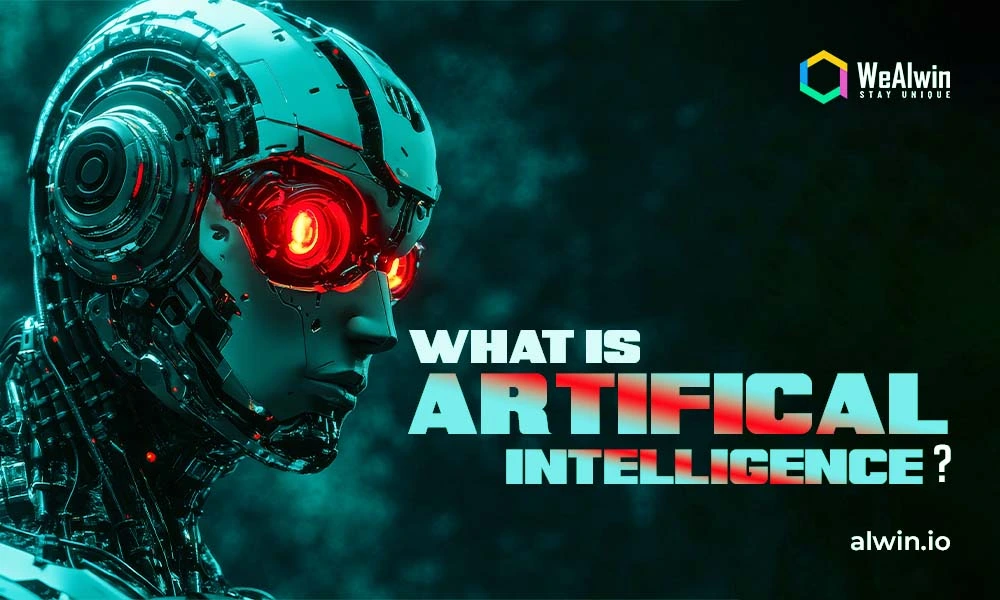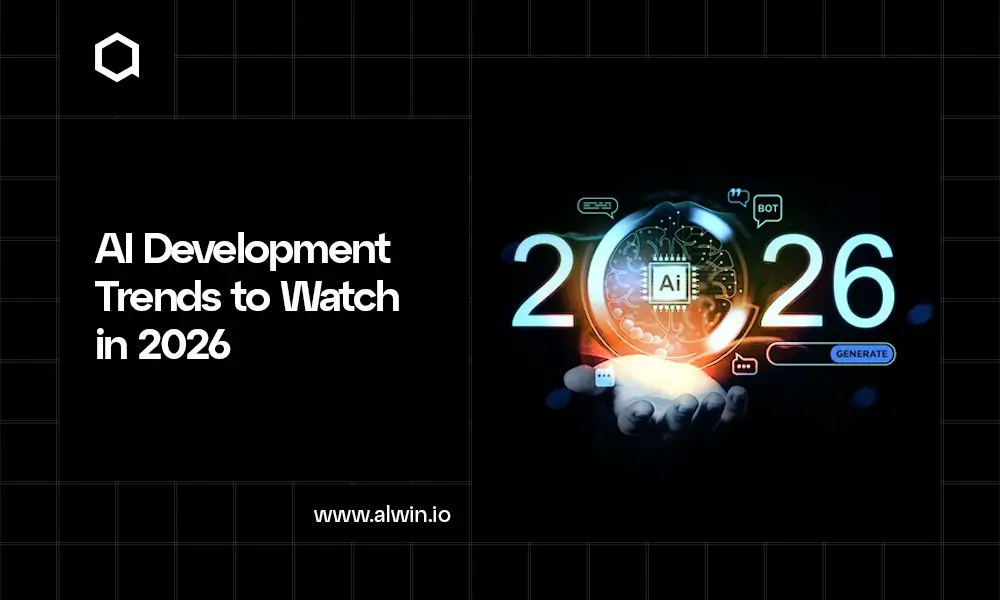Artificial Intelligence (AI) is no longer just a concept from science fiction—it’s real and changing the world around us. Whether you're using voice assistants like Siri or Alexa, or seeing advancements like self-driving cars, AI plays a bigger role in how we live and work. It’s transforming industries, improving how things get done, and opening up exciting new opportunities.
But how does AI work? How can machines do tasks that we once thought only humans could do? In this blog, we’ll explain the basics of AI, the technologies behind it, and how AI is used in real life to improve everything from business to healthcare.
What is AI?
Artificial Intelligence (AI) means machines can perform tasks that normally require human intelligence, like recognizing speech, making decisions, solving problems, or translating languages.
However, AI isn't just about making machines that think like humans. It’s about creating systems that learn, adapt, and improve over time without being programmed for every task. The idea is to build machines that process information and respond in ways that mimic human thinking, allowing them to handle complex problems.
Types of AI
1. Based on Capabilities
Narrow AI (Weak AI):
This type of AI is designed for specific tasks, like Siri or Alexa, which can understand voice commands but only for certain actions. It’s the most common AI today.
General AI (Strong AI):
General AI aims to replicate full human intelligence. It would be able to learn and handle any task a human can, without needing instructions. Though we’re not there yet, it’s being researched and holds a lot of potential.
Super AI:
This future AI could surpass human intelligence in every area. While it's still a concept, it raises both excitement and concerns because of its limitless possibilities.
2. Based on Functionalities
Reactive Machines
These AI systems do not retain memories or past experiences for future use. Instead, they analyze current situations and respond accordingly. An example of this type is IBM's Deep Blue, which famously defeated Garry Kasparov in chess.
Limited Memory
These AI systems can make informed decisions by learning from past data. Most modern AI applications, including chatbots, virtual assistants, and self-driving cars, fall into this category.
Theory of Mind
This advanced form of AI, still under research, aims to understand and remember human emotions, beliefs, and needs. Such AI would make decisions based on a true understanding of human interactions.
Self-aware AI
This represents a theoretical future where machines possess their own consciousness and self-awareness. Self-aware AI would understand emotions and could develop beliefs and desires, but this type is still in the realm of speculation.
Branches of Artificial Intelligence
AI research has made significant strides in developing effective techniques for solving diverse problems, ranging from game playing to medical diagnosis. Here are some key branches of AI, each with its focus and methodologies:
Machine Learning (ML)
This branch focuses on creating algorithms that can learn from data. ML algorithms are widely used in applications such as image recognition, spam filtering, and natural language processing.
Deep Learning
A subset of machine learning, deep learning utilizes artificial neural networks to learn from large amounts of data. It excels in solving complex problems, particularly in natural language processing, image recognition, and speech recognition.
Natural Language Processing (NLP)
NLP is concerned with the interaction between computers and human language. Techniques in this field enable machines to understand, interpret, and process human language, with applications in machine translation, speech recognition, and text analysis.
Robotics
This branch combines engineering and computer science to design, build, and operate robots. Robots can automate tasks across various industries, including manufacturing, healthcare, and transportation.
Expert Systems
These are computer programs that emulate the decision-making abilities of human experts. Expert systems are utilized in numerous applications, such as medical diagnosis, financial planning, and customer service, providing insights and recommendations based on data analysis.
How Does AI Work?
AI works through a combination of several key technologies. Here’s how it happens:
Machine Learning (ML)
Machine learning allows computers to learn from data. Instead of manually programming the machine for each task, ML algorithms learn from patterns and get better over time. For example, the more a machine "sees" certain types of images, the better it gets at recognizing them. This happens through:
- Supervised Learning: The machine learns from labeled data (where we know the right answer).
- Unsupervised Learning: The machine learns from data without labels, discovering patterns on its own.
- Reinforcement Learning: The machine learns by trial and error, adjusting based on feedback or rewards.
Neural Networks
Neural networks are like the brain’s neurons—they’re a system of connected nodes that process data. Each connection (or node) can adjust its strength (called "weights"), allowing the network to learn from experience. Neural networks are especially good for tasks like recognizing faces or understanding speech.
Deep Learning
Deep learning is a special kind of machine learning that uses layers of neural networks (hence "deep"). These models learn to automatically pick out features from raw data, making them very effective at tasks like image classification or language translation. Deep learning powers technologies like facial recognition and self-driving cars.
Natural Language Processing (NLP)
NLP helps AI understand and respond to human language, like when you ask Siri or Google Assistant a question. It uses a mix of linguistics and machine learning to process and interpret text or voice commands. NLP is behind chatbots, translation tools, and virtual assistants.
Data and Algorithms
AI needs a lot of data to learn. Big datasets help train AI systems by giving them lots of examples. The more data they have, the better they perform. Smart algorithms then use that data to help the AI learn patterns and improve its accuracy over time.
Use cases of AI
AI is all around us, helping improve daily life and various industries. Here are some areas where AI is making a big difference.
AI in Everyday Life
Virtual Assistants: Siri, Alexa, and Google Assistant use AI to understand your voice, manage your schedule, and control smart devices.
Recommendations: Netflix, Amazon, and Spotify use AI to recommend shows, products, or music based on your preferences.
AI in Business
Customer Service: AI chatbots answer basic questions, improving response times and handling tasks so human employees can focus on more complex issues.
Data Analysis: AI helps businesses understand trends and patterns in large datasets, making it easier to make smart decisions.
AI in Healthcare
Medical Imaging: AI can analyze medical images like X-rays or MRIs faster than humans, helping doctors spot diseases early.
Personalized Medicine: AI looks at a patient’s history and genetic data to create customized treatments that improve outcomes.
AI in Finance
Fraud Detection: AI scans transactions for suspicious activity in real-time, protecting consumers from fraud.
Algorithmic Trading: AI helps analyze market data and execute trades faster, maximizing profits.
AI in Transportation
Self-Driving Cars: AI enables autonomous vehicles to drive, avoid obstacles, and make decisions on the road.
Traffic Management: AI analyzes traffic patterns and helps adjust signal timings to reduce congestion in cities.
Benefits of AI
If a program can carry out a task that we would normally expect a human to do, it can be classified as artificial intelligence. While artificial intelligence offers numerous advantages let's see below
Efficiency: AI processes large amounts of data quickly and automates repetitive tasks.
Better Decision-Making: AI finds patterns in data that help businesses and individuals make informed choices.
Personalization: AI tailors services or recommendations to your preferences, like custom movie suggestions.
Cost Savings: AI automation lowers costs by improving efficiency and reducing waste.
24/7 Availability: AI systems like chatbots are always available, providing customer support around the clock.
Challenges of AI
Job Displacement: Automation could replace certain jobs, leading to economic concerns.
Ethical Issues: AI can unintentionally introduce bias or invade privacy, so responsible development is key.
High Implementation Costs: Building AI systems requires significant investment in technology and skilled workers.
Data Privacy Risks: AI's dependence on data raises concerns about security and privacy.
The Future of AI
AI is progressing quickly, and its future promises significant opportunities across various industries and everyday life. Below are the key trends that will influence the evolution of AI:
Advanced Machine Learning
Expect more powerful algorithms that improve AI’s accuracy and make it more useful in many industries.
AI in Business
More companies will integrate AI into everyday operations, from customer service to decision-making, making AI a key part of business strategy.
Improved Natural Language Processing
AI will get better at understanding and responding to human language, making chatbots and virtual assistants more conversational and intuitive.
Ethical AI Development
There will be more emphasis on building responsible AI that addresses concerns about bias, transparency, and fairness.
AI-Human Collaboration
Instead of replacing humans, AI will work alongside us, enhancing what we can do and creating new job roles that combine human creativity with AI’s analytical power.
Conclusion
AI is transforming industries and shaping the future. From improving everyday tasks to new advancements in business, AI offers huge potential. If you’re ready to explore the possibilities of AI, WeAlwin Technologies an AI development company tailored to your specific needs, will help you stay ahead in this fast-moving field.



